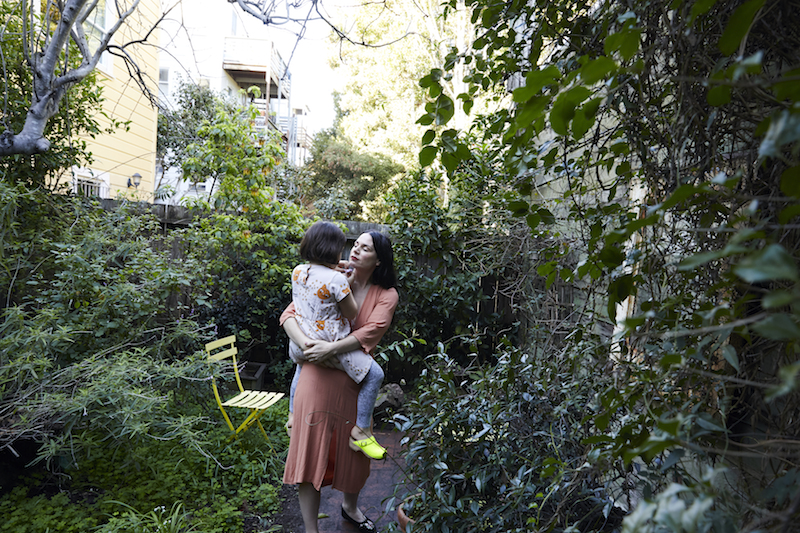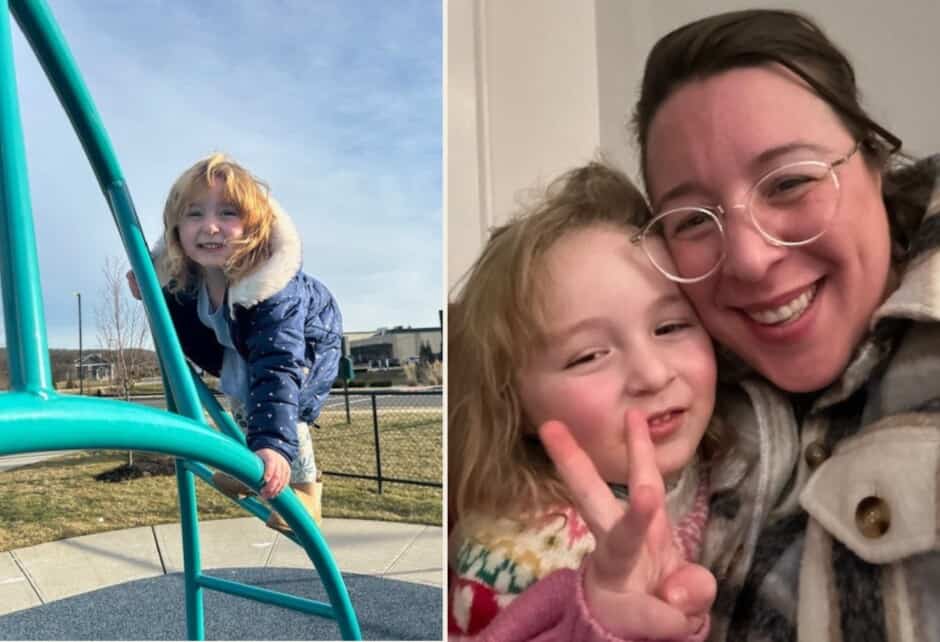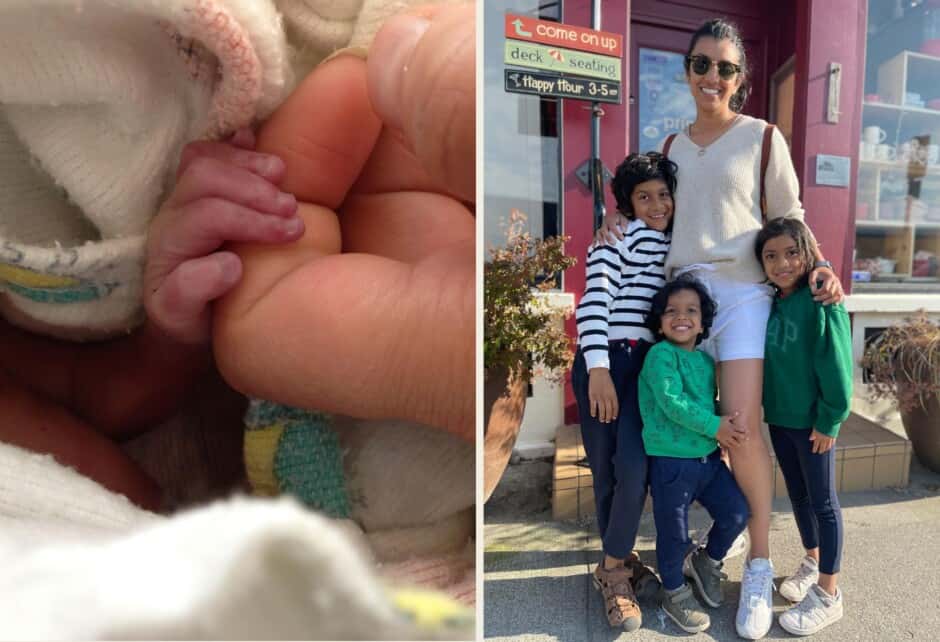
Mom Talk: Parenting Under The Weight Of Climate Change
Written by Amber Troutman
Photography by Photography by Aubrie Pick
For anyone raising a child today, climate change casts an unavoidable shadow over all the hopes and expectations we may have for their future. As the climate scientist Kate Marvel so eloquently said, “We are inevitably sending our children to live on an unfamiliar planet. But the opposite of hope is not despair. It is grief. Even while resolving to limit the damage, we can mourn. And here, the sheer scale of the problem provides a perverse comfort: we are in this together. The swiftness of the change, its scale and inevitability, binds us into one, broken hearts trapped together under a warming atmosphere.” In today’s Mom Talk, Amber Troutman beautifully ruminates on this new reality, and how it effects her daily life as a mother.
I moved to the Bay Area with my husband and two daughters just over a year ago. A couple months in, while still adjusting to a seismic cross-country shift, the Camp Fire ignited 160 miles north of us in Paradise. For two weeks we awoke each morning to caustic fumes and burning throats, then wore face masks to venture outdoors. At school, there was no recess. Hundreds of kids corralled inside all day until the air was so saturated with ash that classes were cancelled. For two weeks there were no scooter rides, no cartwheels in the grass, no imagined flights on a swing. And we were by far the lucky ones.
Fires continue to rage across hemispheres. Unusually torrential rains deluge sinking cities. The Amazon rainforest is disappearing. I’ve caught just a glimpse of what the future looks like for my daughters and the present is even more dire for many of the most vulnerable children across the globe. My heart aches for all of them, and that ache transforms the way I mother. I still wipe sticky faces and help with homework and answer nonsensical questions in gibberish. But now I do it all beneath the weight of a rapidly warming atmosphere.
Under the shadow of climate change, visions of tomorrow have been scoured and refined. My oldest daughter dreams of becoming a midwife or a librarian or an artist. The youngest is convinced that her purpose in life is to be a professional roller skater. Both already talk about the babies they’ll have someday. And while I wish all the wonders of life to be theirs, my greatest hope is that they’ll have ample resilience to face the potential climate catastrophe ahead. In the meantime, I try to live more sustainably and, in my fumbling attempts, empower my children to do likewise. They’re often the ones who help me stay the course.
But that course meanders. All the unintended consequences of modern life can be paralyzing, while every conscious choice feels like an imperceptible drop in a vast ocean. And it’s frustrating to feel like a solitary individual trying to curb my carbon footprint when one-third of global emissions have been attributed to 20 companies alone. They should be the first held to account. But I must also acknowledge that I’m a citizen of a country that has consistently been a dominant culprit (if not, the dominant culprit) in the warming of the planet. So I’ve stood to benefit, while the poorest half of humanity produces just a fraction of harmful emissions, yet are disproportionately affected by the ravages of climate change. The disparity and economic injustice are staggering. It further compels me to act, knowing that my consumption today will affect the future my children will inhabit, and is simultaneously woven into the experience of children fleeing flooded homes in Indonesia.
There are seemingly endless ways to do better, but data shows that the production of meat and animal products is a leading cause of global warming and deforestation (some estimates even peg it as the source of a whopping 51% of global emissions) and that’s enough to give me pause. In his most recent book, We Are the Weather (which I evangelize and highly recommend), author Jonathan Safran Foer cites a recent IPCC report and goes so far as to assert that “choosing to eat fewer animal products is probably the most important action an individual can take to reverse global warming…and, done collectively, would push the culture and the marketplace with more force than any march.”
Ok, let’s not stop marching. But as someone living in a country that consumes a disproportionate share of animal products (U! S! A!) and even as someone who has skewed vegetarian for most of my adult life, this knowledge is power. Being more thoughtful about what I eat can have an impact and for me that looks like a reckoning with dairy (my family are cheese-loving folk!). It’s a fairly simple adjustment that helps me feel a little bit less helpless.
Plant-based diets have a polarizing history and relationships with and around food can be deeply complicated. But Foer is clear that his proposal doesn’t have to mean giving up animal products completely. It can look like dialing back a little here and there. Eating meat and/or diary at just one meal a day. And (if I can work up the nerve to risk being dubbed a tree-hugging alarmists) spreading the word.
As with so much of motherhood, we’re in this one together. I know I’m not alone beneath the looming weight of a warming atmosphere. There are leagues of others who strive to navigate a sustainable path through this landmine of plastic and fossil fuels. I echo the sentiments of climate scientist, Kate Marvel, and take courage in knowing that even as we mourn, we shoulder the burden together. I take courage in the knowledge that my contribution doesn’t have to be perfect if I’m one with a shifting tide composed of small, everyday acts that rise up in a healing tsunami of change.
Are you a mother with something to say? Send us an email to be considered for our “Mom Talk” column.
Share this story



